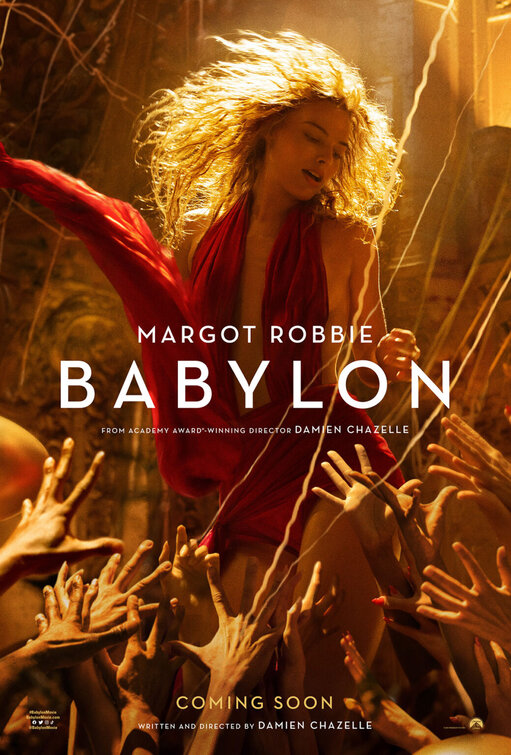
At a time when the movie industry seems to be only concerned with the bottom-line, milking existing franchises for every penny and continuing to pump out increasingly ridiculous comic book movies, it is surprising that directors who have built up a critical following and/or have achieved significant awards success, do seem to be given the chance to indulge themselves on a big budget still. Last year, David O Russell’s Amsterdam failed spectacularly at the box office. Now, Damien Chazelle, who made his name with Whiplash and La La Land, has been allowed by Paramount to make the $78 million sprawling Babylon that clocks in at a bum-numbing 3 hours 9 minutes, with the knowledge that it had no chance of making a profit.
This tale of 1920’s and 30’s Hollywood follows the lives of a group of characters connected to the movie business at the tail end of the silent era and the emergence of talkies. The outrageous Nellie LaRoy (Margot Robbie) is an aspiring actress, proclaiming herself a star before she has appeared on screen once. Manny Torres (Diego Calva) is looking for any introduction to the business and starts to do odd jobs for the biggest silent movie star, Jack Conrad (Brad Pitt). Sidney Palmer (Jovan Adepo) is a brilliant trumpeter who loves to play and Elinor St. John (Jean Smart) is a reporter and gossip columnist who can make or break careers.
This is a period that I am interested in, particularly the latter decade, and I thought the best parts of Babylon are those focusing on the process of film making rather than the parties and other excesses that bloat the running time. Of those, there is one truly outstanding scene involving the shooting of Nellie’s first sound film that is both brilliantly funny and technically ingenious. It also heavily features Olivia Hamilton as the director of the film, and she provides one of the two best performances in Babylon. It is no coincidence that Hamilton also appears heavily in another tremendous set piece as Nellie performs in a short silent movie.
Until the combination of the 1934 Hays Code and the great depression, hedonism did seem to rule Hollywood but probably not to the extent that it is shown here. Also, whilst there were wild actresses, and Robbie is a force of nature in her part, LaRoy does not quite ring true. Conrad, clearly modelled on John Gilbert, turns out to be a more nuanced character and Pitt gives probably his best performance since Moneyball.
It pretty much goes without saying that Babylon is too long. A couple of the party sequences could have been trimmed and I could have done without all of Manny’s trip to a bizarre underground club or an extended snake fighting sequence. However, there are large parts of the film that are excellent including an epilogue set in 1952 where Chazelle acknowledges his debt to Singin’ in the Rain that covered the same themes in a better way.
Rating: 7.5 out of 10